Skin Microbiome – A World You Never Knew Existed

Did you know your skin is home to billions of microorganisms that are good for you? Picture courtesy: Unsplash
We are pretty sure you must have heard about the gut microbiome, either on the internet or our YouTube videos, but do you know there is something called a skin microbiome too?
The human skin, the outer covering of the body, is the largest organ of the integumentary system (the largest organ of the body). These tissues serve as the first line of defense by preventing pathogenic organisms and foreign substances from invading the human body. Beyond its protective functions, human skin also serves as an ecosystem for billions of microorganisms, just like our gut.
What is the skin microbiome?
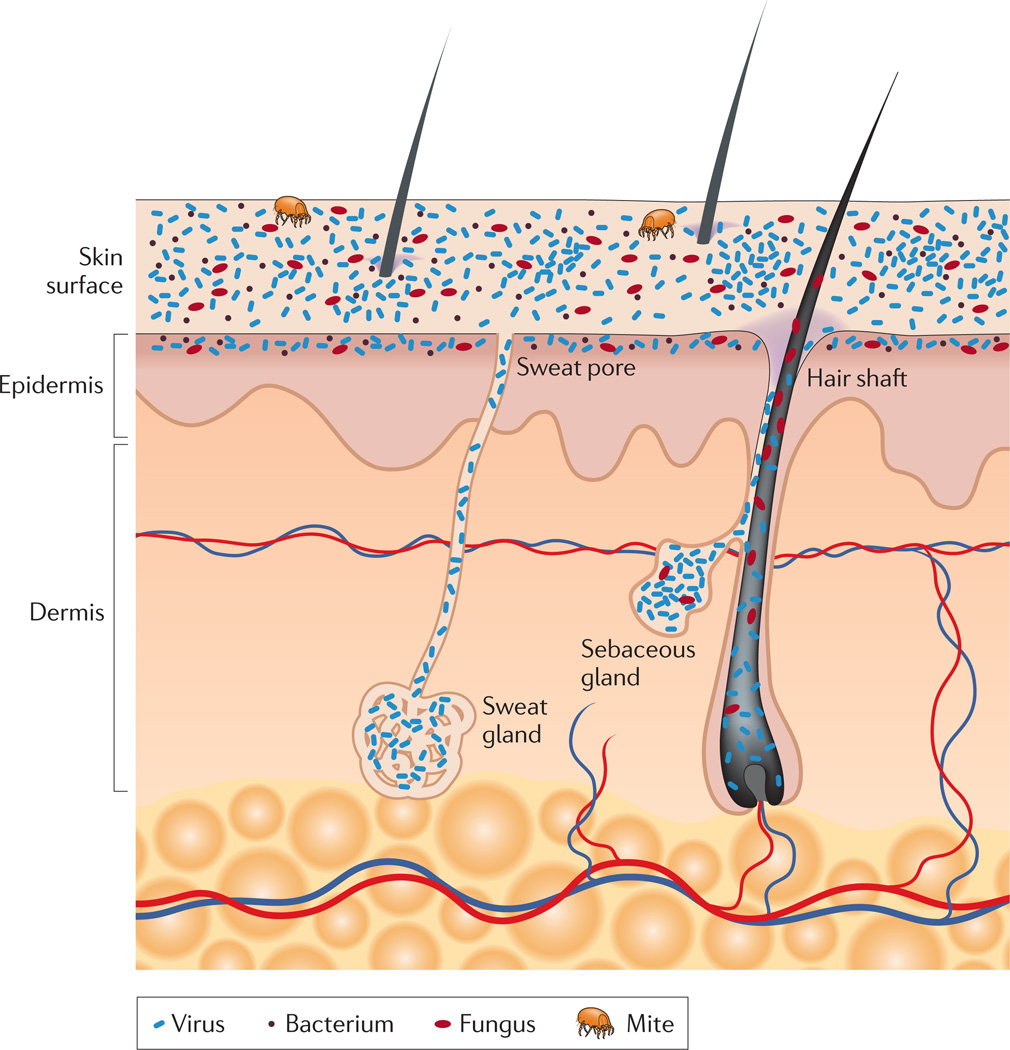
Human skin serves as an ecosystem for billions of microorganisms like our gut. Image courtesy: NCBI
We typically think of skin from a cosmetic point of view, but do you know it’s linked to our overall health? After all, it’s the largest organ in the body, and it’s what connects us with everything outside of us.
Skin microbiome is the term given to billions of microorganisms living on our skin, such as bacteria, fungi, and viruses. The microorganisms on the skin largely depend on the physiology of each skin site. The microbiome also tends to vary based on age, gender, weather, lifestyle, and so on.
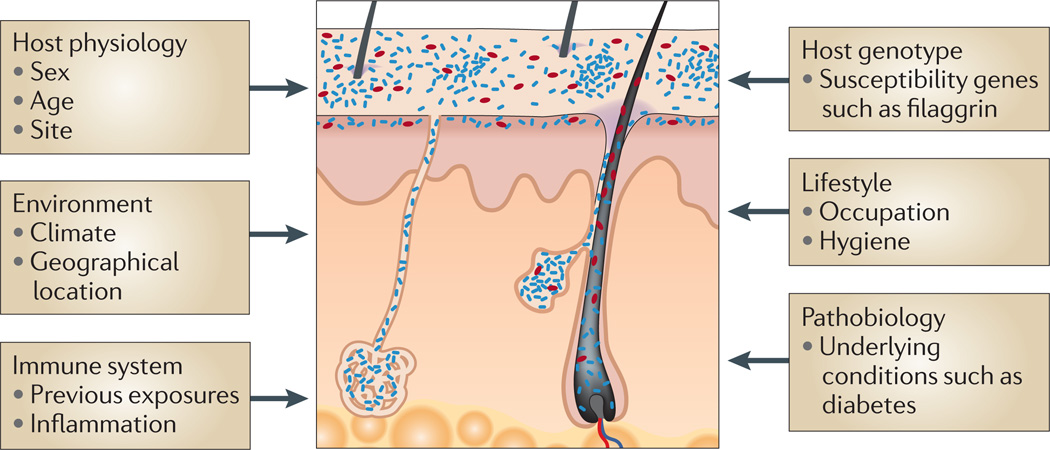
Several internal and external environmental factors affect the skin microbiome. Image courtesy: NCBI
Why is it important?
- Microbiome and inflammation – The prevalent teenage condition, acne vulgaris, is a chronic inflammatory skin condition associated with the bacterium P. acnes. Atopic dermatitis (also known as eczema) is a chronic, relapsing inflammatory disease with multiple contributing factors, including alterations in the community of associated skin microorganisms.
- Microbiome and immunity – The skin microbiota, like the microbes present in the gut, can interact with the immune system, helping to maintain skin homeostasis by inhibiting the growth of microorganisms present on the skin and reducing inflammation. Uncontrolled skin immune response can be seen in skin disorders such as psoriasis and atopic dermatitis.
- Microbiome and wound healing – In addition to classical skin diseases, microorganisms that colonize the skin have also been shown to affect the healing of chronic wounds prevalent in populations that are elderly or have diabetes or obesity. There are scientific studies that highlight the role of microorganisms in the case of diabetic foot ulcers (DFUs)
What harms the skin microbiome?
- Overuse of chemical-laden skincare products: On average, a person applies 10-12 different products starting from toothpaste, soaps, body washes, to lotions and deodorants on their skin daily, thereby exposing themselves to a variety of chemicals. While we all tend to fall prey to marketing gimmicks, it is important to understand these chemicals and how they impact our skin microbiome.
Following are a few examples to give you a better understanding –
1. Synthetic colors are commonly found in make-up and colorful skincare products. Unfortunately, they may lead to an increased risk of skin sensitivity and irritation. In addition, these chemicals can throw the beneficial bacteria in your skin microbiome off-balance, close pores, and make acne flare-ups.
2. Parabens- Most have heard about these being present in shampoos. However, they are not just restricted to that. They are also present in deodorants, cosmetics, body washes, moisturizers, and facial cleansers. While they are used as preservatives, they act in the body similarly to the hormone estrogen (estrogen-mimickers), disrupting the hormones. In addition, when these preservatives get absorbed by the skin, they can impair the growth of beneficial bacteria and promote the multiplication of harmful microorganisms, thus affecting the skin microbiota.
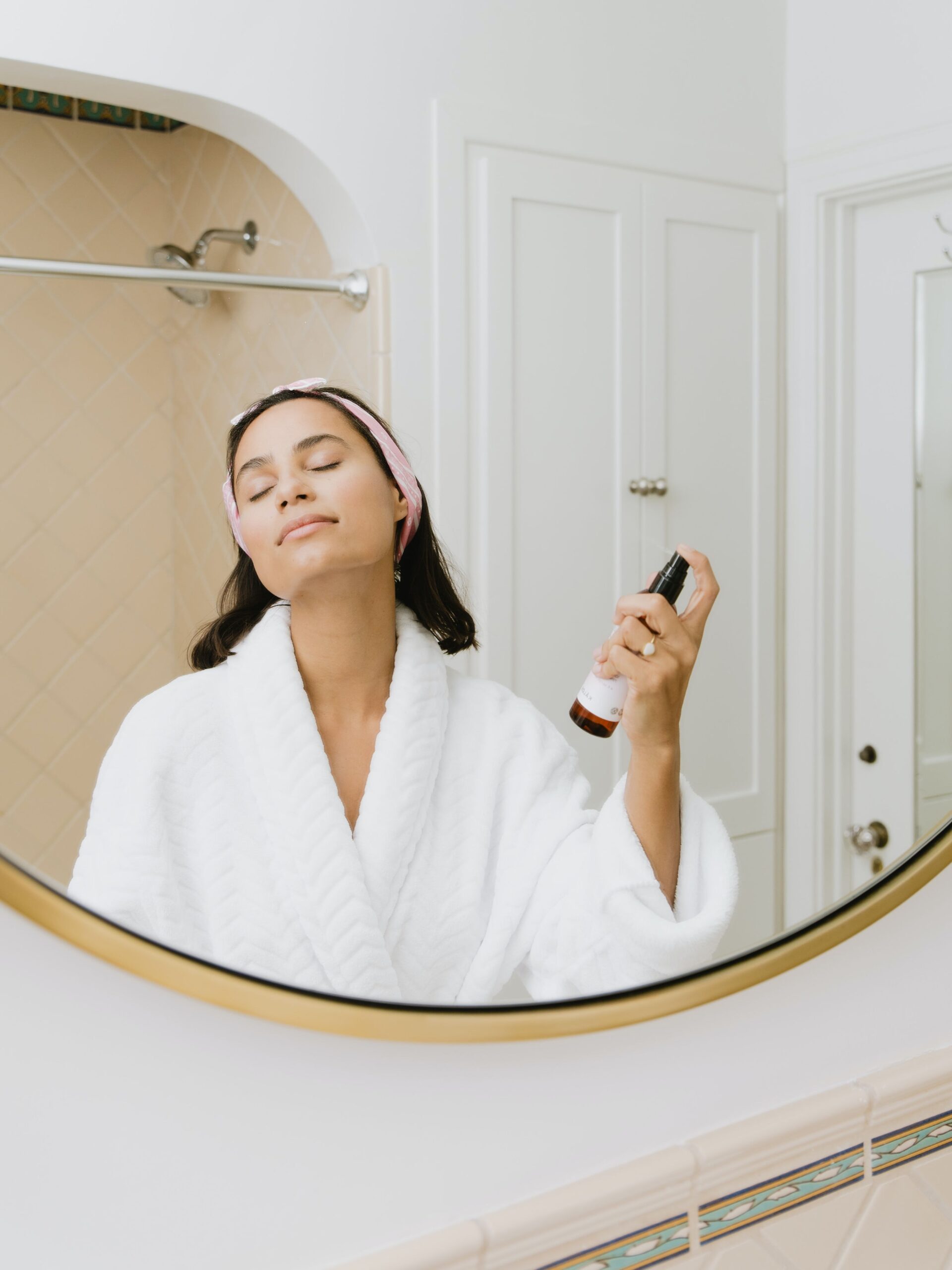 Essences, serums, moisturizers, and oils affect the microbiome’s ability to thrive. Photo courtesy: Unsplash
Essences, serums, moisturizers, and oils affect the microbiome’s ability to thrive. Photo courtesy: Unsplash
3. Synthetic fragrances and perfumes are often found in perfume, deodorants, hair products, moisturizers, and many lotions and creams. These can have different effects on the skin microbiome – depending on what chemicals are included.
4. SLS & SLES– Sodium Lauryl (SLS) and Laureth Sulfate (SLES) are the most common surfactants in today’s skincare products. They are recognizable by their names (SLS and SLES), and they are commonly found in soaps and shampoo, body wash, lotions, toothpaste and mouthwash, and washing liquid.
- Compromised gut health- The gut microbiome appears to influence the skin microbiome. For example, short-chain fatty acids in the gut can promote the growth of certain skin microbes, which influence immune defense and regulate skin inflammation.
- Modern lifestyle- Living in urban environments with less access to green parks leads to alteration in the diversity of the microflora. Also, the need to over-sanitize and be overly hygienic can slowly damage the balance by making the skin too alkaline, which is a perfect environment for opportunistic bacteria (our skin microbiome requires a more acidic pH).
Lifestyle changes to help improve the skin health
- Keep a check on your gut health and work on managing chronic diseases like IBS, IBD, chronic constipation, acidity, and so on.
- Choose your skincare products wisely and read ingredient labels. One can also visit YouCareLifestyle to choose chemical-free products as we screen them and only showcase cleaner products.
- Keep your skin well hydrated.
- Be smarter about hand sanitizers and harsh soaps. Sanitize but do not over-sanitize.
- Beauty is an inside-out approach. Eat a balanced diet and include pre and probiotic-rich foods.
- Keep your skin well moisturized with the help of coconut oil or jojoba oil
- Be more active as that improves the blood flow to the skin
- Take a walk-in nature and inculcate habits like walking barefoot on grass early morning
- Play in the mud more often as that exposes us to a great variety of skin bacteria that are beneficial for us
- Keep a check on your stress levels as that can alter the microbiome
- Get that beauty sleep!
- Keep yourself well-oxygenated through pranayama and deep breathing.
- Quit smoking
- Avoid binge drinking
Your skin reflects the lifestyle that you follow, as there is no magic pill to get clear skin. It’s always an inside-out approach. Be more mindful of the false advertisements and know your ingredients before buying any product- expensive doesn’t always mean good.
Is skin health a concern for you? Maybe the solution is not another cream but fixing things within your body. Book a consultation with our skin experts to discuss your skin health. Call us on 18001020253 or email us at consults@lukecoutinho.com.
|
From a pimple to cancer, our You Care Wellness Program helps you find a way Talk to our integrative team of experts today 18001020253 |

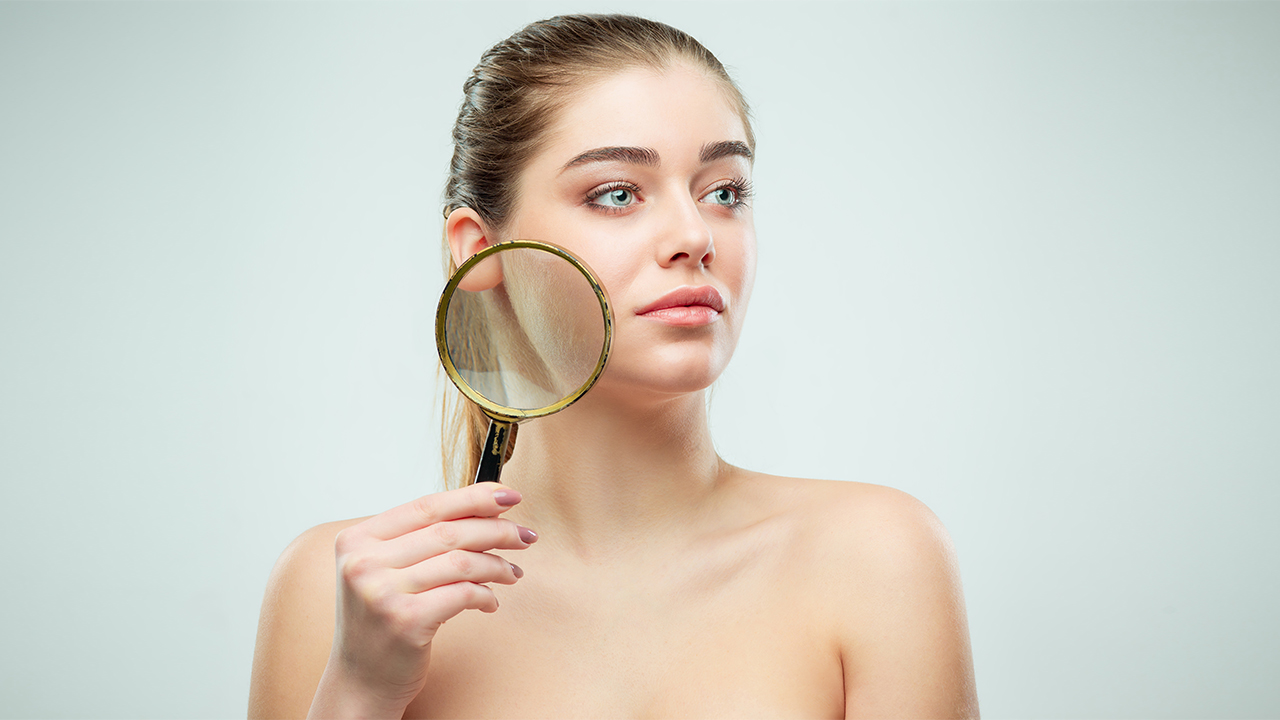






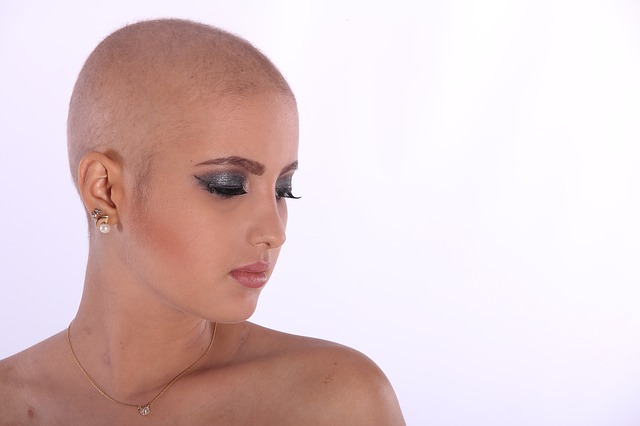

Leave a Reply